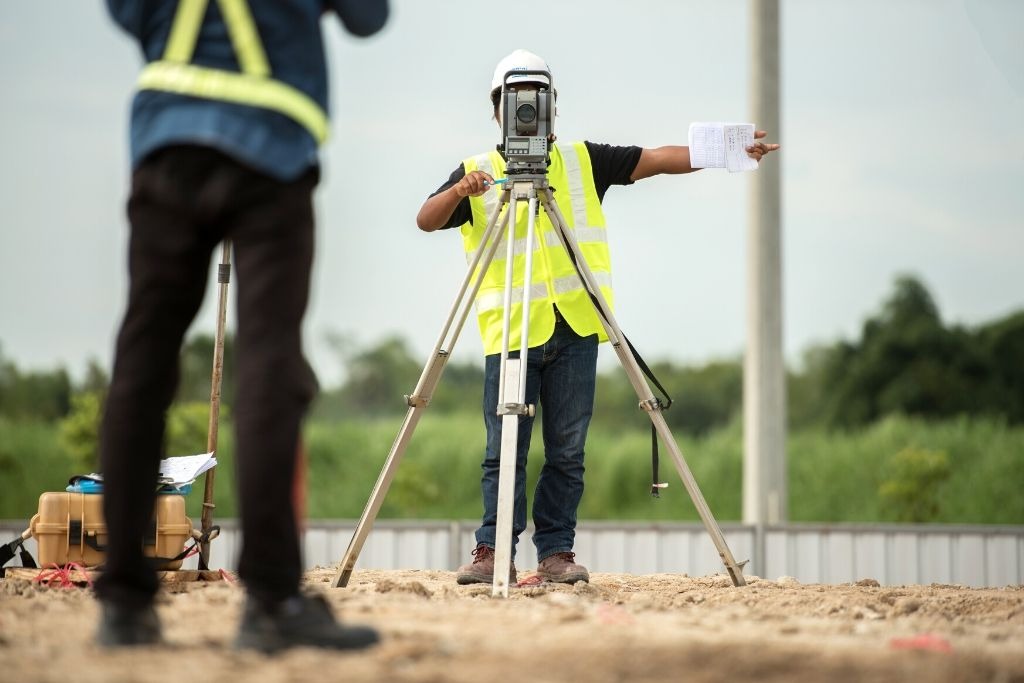Have you ever wondered how architects and engineers know exactly where to place a building or how roads are aligned perfectly across uneven terrain? How do construction teams avoid costly mistakes and ensure safety on complex sites? The answer lies with surveyors—the professionals who measure, map, and analyze land and structures, providing the precise data that construction projects rely on. Surveyors are critical to the success of construction, ensuring accuracy, safety, and efficiency from planning to completion.
Understanding the Role of Surveyors
A surveyor’s primary responsibility is to determine precise measurements and boundaries of land or structures. They use a combination of traditional tools such as theodolites and modern technologies like GPS, laser scanning, and drone imaging to gather accurate data. Surveyors are involved in various types of surveys, including land surveys, topographic surveys, construction staking, and boundary surveys. Each type serves a specific purpose in the construction process, guiding project design and execution.
In the early stages of a construction project, surveyors assess the land to understand its contours, elevations, and potential challenges. This information is critical for architects and engineers as they develop building designs and site plans. A topographic survey, for example, identifies slopes, natural features, and obstacles that could impact the construction. Without this information, planners might overlook critical factors that could lead to structural instability or environmental harm.
Ensuring Accurate Planning and Design
Surveyors play a vital role in translating theoretical designs into practical, buildable plans. Accurate surveying allows architects and engineers to determine where structures should be placed and how they should be oriented. This ensures optimal use of space, compliance with zoning regulations, and adherence to environmental considerations.
For example, in urban construction, space is often limited, and the margin for error is small. Surveyors provide precise measurements that help engineers design foundations that are safe and durable. Hiring trustworthy land surveyors ensures that every detail is verified and recorded with accuracy, giving developers confidence in their projects. In large-scale infrastructure projects, such as highways or bridges, even minor inaccuracies in surveying can result in significant structural issues or costly rework. By providing exact measurements, surveyors help minimize risks and ensure that construction proceeds smoothly.
Construction Staking and Layout
Once the planning phase is complete, surveyors assist with construction staking or layout, which involves marking the locations of buildings, roads, and utilities on the actual site. This step is crucial because it translates the design on paper into real-world coordinates. Construction crews rely on these markers to ensure that the project is built according to plan.
Surveyors also verify that the construction is progressing as intended. They conduct periodic checks to confirm that structures are aligned correctly, foundations are level, and elevations meet design specifications. This ongoing involvement helps prevent errors from accumulating and ensures that the final structure meets safety and quality standards.
Legal and Boundary Considerations
Surveyors also serve an important legal function in construction. Determining property boundaries accurately is essential to avoid disputes with neighboring landowners and ensure compliance with local regulations. Encroaching on another property, even inadvertently, can lead to costly legal battles and project delays. Surveyors provide certified boundary surveys that clearly define property lines and document ownership, giving construction teams and developers the confidence to build without fear of legal complications.
In addition, surveyors often assist in obtaining permits and approvals by providing accurate site data to government agencies. Many regulatory requirements depend on precise information about land use, elevation, and environmental impact. Surveyors ensure that these requirements are met, helping projects move forward without unnecessary bureaucratic delays.
Risk Management and Safety
Surveying is also critical for risk management in construction. Accurate surveys help identify potential hazards such as unstable soil, flood-prone areas, or underground utilities. By highlighting these risks before construction begins, surveyors allow engineers to implement design modifications that mitigate danger.
Furthermore, surveyors contribute to the safety of construction workers on-site. Incorrectly marked boundaries or elevations can lead to accidents, equipment damage, or structural failure. Regular surveying checks help maintain a safe working environment and protect both personnel and investment.
The Technological Evolution of Surveying
Advancements in technology have expanded the capabilities of surveyors, making their work faster, more precise, and more comprehensive. Tools like 3D laser scanners and unmanned aerial vehicles (drones) allow surveyors to create highly detailed digital models of sites. These models can be integrated with Building Information Modeling (BIM) systems, enabling engineers, architects, and contractors to collaborate more effectively.
Geographic Information Systems (GIS) further enhance surveying by allowing for the storage, analysis, and visualization of spatial data. With these technologies, surveyors not only provide measurements but also offer insights that inform decision-making throughout the construction lifecycle.
Conclusion
Surveyors are indispensable to the construction industry, providing the foundation for accuracy, safety, and efficiency. From initial land assessments to ongoing construction checks, their expertise ensures that projects are completed on time, within budget, and according to design specifications. By preventing errors, mitigating risks, and supporting legal compliance, surveyors protect the interests of developers, contractors, and the public alike.
In a field where precision can mean the difference between success and disaster, surveyors are the unsung heroes. Their work enables architects and engineers to bring ambitious designs to life, safely and reliably. As construction projects grow more complex and technology continues to advance, the role of surveyors will only become more vital, cementing their place as essential contributors to the built environment.





